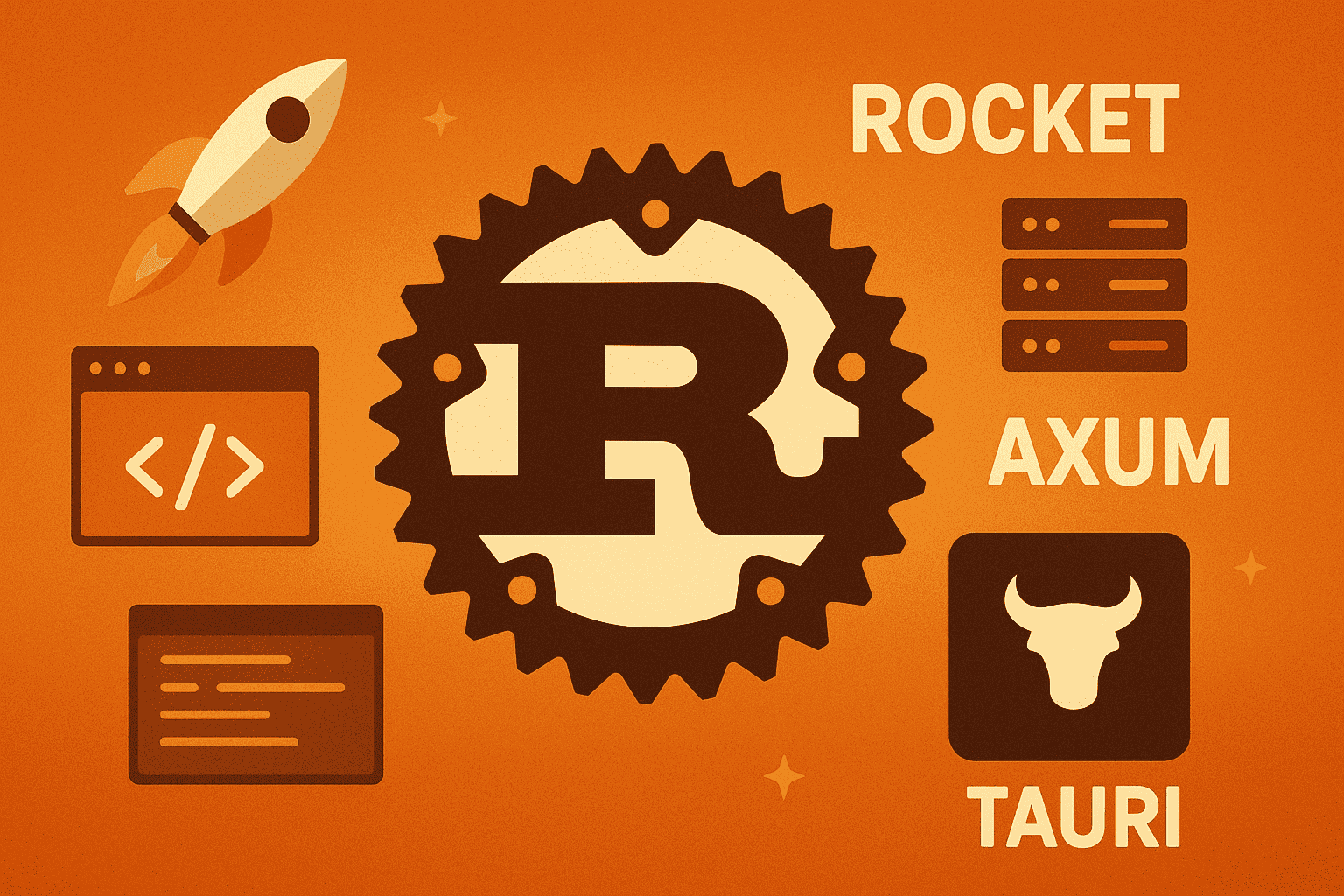Traditionally, Rust has been praised for memory safety, concurrency performance and systems-level work. Web- and application-framework support lagged behind more mature stacks (e.g., PHP/Laravel, Node.js/Express). But in 2025 the ecosystem is catching up. The recent Rust Foundation Technology Report highlights Rust’s expanded focus on safety-critical environments, supply-chain security and ecosystem maturity.
Meanwhile, content tracking Rust’s ecosystem shows that tools and frameworks—from async libraries to WASM support—are now “full-stack ready”.
For a developer whose background is in LAMP (Linux, Apache, MySQL, PHP) and frameworks like Laravel, this moment presents a chance: to adopt Rust and its frameworks for performance-critical parts of your stack.
Key Developments / Details
- Rocket (web framework) has been around for a while and offers routing, templating and JSON handling with Rust’s speed and safety.
- Axum is another Rust web-framework designed for async, modular API design; while Tauri combines Rust back-end with a JavaScript/WebView front-end for lightweight desktop apps.
- The Rust project’s 2025 goals emphasise making async Rust development smoother, improving tooling, and stabilising features that frameworks depend on (e.g., async fn in traits)
- Developer reports show rising interest in Rust frameworks for full-stack: “Frameworks defining Rust development” include web, data, ML and WASM domains.
Technical Explanation
If you’re comfortable with PHP/Laravel, think of Rocket or Axum as their Rustian cousins.
- In Laravel you write controllers and routes; in Rocket you define routes with macros, handlers in safe Rust code.
- Tauri is like choosing Electron (JS + browser) but instead you use Rust for the back-end logic, and a WebView for the UI—lighter footprint, faster startup.
- The key gain is: Rust’s ownership/lifetime system prevents many runtime bugs (e.g., memory leaks or concurrency hazards) that dynamic languages struggle with. The trade-off is you need to think about types, lifetimes and borrow rules.
- As one developer put it:
“I’m working on a Web Application built using Axum, Diesel… so far I’m really enjoying it.”
That shows there’s genuine adoption, even if learning curve remains.
Implications
- For you as a full-stack dev: Integrating Rust frameworks means you can build high-performance modules (APIs, microservices, desktop pieces) that sit alongside your PHP/Laravel apps. It opens a new tool-belt.
- For startups & businesses: Adopting Rust frameworks can reduce runtime errors and maintenance burdens (thanks to memory safety), especially in domains where reliability matters (finance, embedded, desktop utilities).
- For the ecosystem: Rust is moving from “niche systems ” to mainstream full-stack options. That’s significant: more libraries, frameworks, jobs, and tooling will follow.
Challenges / Limitations
- Learning curve: Rust’s model (ownership, lifetimes) is steeper than PHP/Python. Developers report “Rust finally started to click when I built a simple CLI tool” rather than jumping into back-end apps.
- Framework maturity: While frameworks exist, they don’t always have as many plugins, community modules or battle-tested integrations as Laravel or Express.
- Ecosystem integration: If your stack is largely PHP/MySQL/Apache, introducing Rust means new build pipelines, tooling, possibly hiring/training.
- Over-engineering risk: For simple web apps where raw performance isn’t crucial, the overhead of Rust might not justify the switch.
Future Outlook
Expect several developments:
- More full-stack Rust frameworks emerging, focusing on developer experience, boilerplate reduction and modular architecture.
- Improved interop: Rust frameworks will better integrate with existing stacks (legacy PHP, microservices) and languages (via FFI, WebAssembly).
- For your HRMS application (Laravel/Next.js): you might see scenarios where backend services (payroll processing, real-time analytics) are moved to Rust frameworks for performance/scaling, while front-end remains Next.js.
- Tooling will continue to mature (editor integrations, templates, CLI scaffolding) making adoption easier.
Conclusion / Summary
Rust’s framework ecosystem is no longer only for systems heroes—it’s now a viable full-stack choice. For developers who’ve honed PHP/Laravel skills, moving into Rust frameworks like Rocket, Axum or Tauri means adding performance, safety and future-proofing to your toolkit. Yes, there’s a learning curve and some ecosystem gaps—but the payoff can be substantial. If you’re looking ahead, think of Rust frameworks not just as “another language”, but as a strategic upgrade for the next phase of applications.
